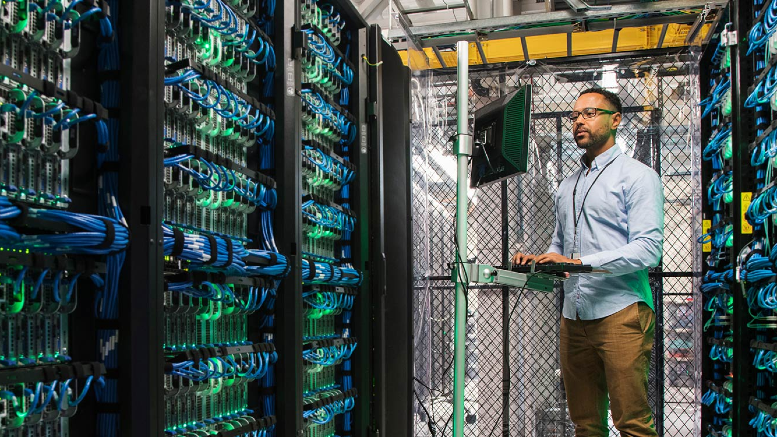AI at the service desk: Reshaping the future of support operations
janvier 23, 2025 / Aron Meyer
Short on time? Read the key takeaways:
- AI is improving service desks by automating routine tasks like password resets and account management while enabling human agents to focus on more complex issues requiring empathy and problem-solving skills.
- AI tools empower agents by surfacing relevant knowledge in real-time, helping them resolve issues faster and deliver better customer experiences.
- AI enhances knowledge management by identifying gaps and refining content, ensuring agents and self-service tools always have the most accurate and up-to-date information.
AI transforms service desk operations in ways that enhance both agent capabilities and customer experiences.
In a recent episode of The Digital Workplace Deep Dive podcast, Weston Morris explored this evolution with Brett Weigl, senior vice president of AI at Genesys, and Aron Meyer, solution manager for Digital Workplace Solutions at Unisys.
As Weston notes, it offers "a little glimpse into the future," where AI anticipates needs and enhances the service desk experience in ways we’re just beginning to realize. Here's how AI is reshaping support in four powerful ways.
1. Automating routine tasks
When it comes to service desks, self-service is one of AI’s most successful applications. It’s now possible to let AI-driven bots handle straightforward tasks like password resets, account access, and simple troubleshooting without the need for human intervention.
Brett explains, “The core value of AI at the service desk lies in containment – letting AI manage routine tasks so human agents can focus on more complex issues.” At Genesys, organizations that embraced this approach saw an 80% increase in self-service adoption, dramatically reducing agent workload.
Automating these requests allows your team to focus on high-value interactions, ensuring faster resolutions for complex issues and improving overall service efficiency.
2. Balancing automation with human connection
While AI is highly effective at handling routine, transactional tasks, businesses must recognize that people still value human connection, especially when their issues are more complex or emotionally charged. Aron highlights this balance: “Consumers expect the bots to be transactional, but their expectations of the humans continue to increase as well.”
Service desk agents excel at empathetic problem-solving when customers need more than automated solutions. While AI handles routine tasks, agents build trust through meaningful interactions, requiring enhanced skills in active listening and emotional intelligence.
This evolution requires recalibrating service-level agreements and KPIs to accommodate deeper customer engagement. As Brett emphasizes, success means measuring both AI efficiency and the smooth transition between automated and human support, optimizing every touchpoint in the customer journey.
3. Empowering agents with AI assistance
AI is redefining how customers interact with your service desk and enhancing the way agents perform their tasks. Tools like Agent Copilot and Agent Assist empower your team by offering real-time support during interactions.
Brett shares, “Agent Copilot technologies can really help to whisper in the agents’ ears,” instantly surfacing relevant content and suggestions that enhance agent capabilities. This reduces the time spent searching for answers and minimizes customer hold times, allowing agents to focus fully on resolving issues.
As Aron notes, “it's making them bionic or giving the agents superpowers.” Rather than replacing human agents, AI amplifies their abilities by providing real-time guidance and streamlining workflows, resulting in an 8-10% improvement in handle times.
Team leads gain equally powerful benefits through AI-driven insights. The technology provides data-driven summaries, alerts, and recommendations to help them better manage their teams. This capability ensures that leads can provide targeted coaching and guidance, enhancing overall service quality and efficiency.
4. Refining knowledge through AI analysis
Keeping your organization’s knowledge base up to date is critical for delivering effective service. AI simplifies this process by analyzing past interactions and identifying gaps in your existing content.
Aron shared how AI tools at Unisys analyze customer interactions, from generative AI bots to expert-level agent tickets. By surfacing gaps in the knowledge base, AI can recommend improvements that ensure agents and self-service bots always have access to the most accurate and relevant content. This continuous refinement ensures your service desk is always prepared to meet evolving customer needs.
AI service desks: What’s next
Predictive AI is reshaping service desk capabilities. Experts like Brett envision intelligent systems that anticipate customer issues and deliver personalized recommendations based on individual service histories. The potential for autonomous AI decision-making could revolutionize issue resolution, allowing agents to focus on high-impact interactions.
Aron underscores a critical insight: data accuracy and intelligent categorization are the foundation of effective AI performance.
Unisys is pioneering this transformation by integrating generative and traditional AI to modernize service desks. We're helping businesses build intelligent support systems that balance technological efficiency with human empathy – creating experiences that generate real customer trust.
The path forward requires strategic technology investment and thoughtful AI integration that amplifies human potential.
Contact Unisys today to learn how we can help you implement AI-driven digital workplace solutions and improve your customer support operations.




















